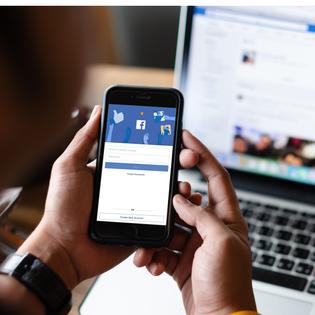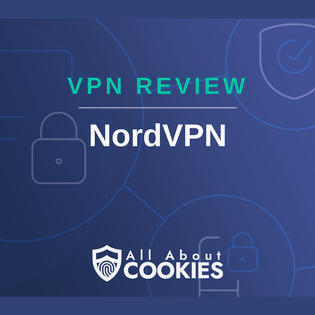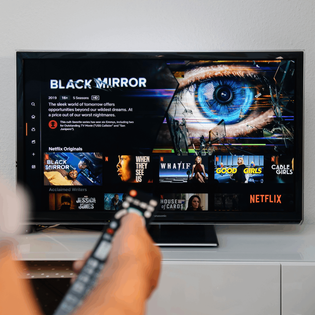Advertiser Disclosure
All About Cookies is an independent, advertising-supported website. Some of the offers that appear on this site are from third-party advertisers from which All About Cookies receives compensation. This compensation may impact how and where products appear on this site (including, for example, the order in which they appear).
All About Cookies does not include all financial or credit offers that might be available to consumers nor do we include all companies or all available products. Information is accurate as of the publishing date and has not been provided or endorsed by the advertiser.
Editorial Policy
The All About Cookies editorial team strives to provide accurate, in-depth information and reviews to help you, our reader, make online privacy decisions with confidence. Here's what you can expect from us:
- All About Cookies makes money when you click the links on our site to some of the products and offers that we mention. These partnerships do not influence our opinions or recommendations. Read more about how we make money.
- Partners are not able to review or request changes to our content except for compliance reasons.
- We aim to make sure everything on our site is up-to-date and accurate as of the publishing date, but we cannot guarantee we haven't missed something. It's your responsibility to double-check all information before making any decision. If you spot something that looks wrong, please let us know.
The internet gives you instant access to information, but it can also expose your personal information to cybercriminals if your internet connection is not protected. One way to protect yourself while browsing is through a virtual private network. A VPN gives you online anonymity by masking your IP address and encrypting your internet traffic.
There are many reasons to use a VPN, but keeping your personal information private while online is one of the most important. You can also use a VPN to unblock geo-restrictions, secure your network and data, circumvent censorship, and more.
There are many VPN services available to help improve your internet usage. We’ve compiled a list of VPN benefits as well as the best VPNs for each use case.
7 advantages of using a VPN
Cons of using a VPN
FAQs on reasons to use a VPN
Bottom line
What are VPNs used for?
A VPN allows you to connect to a server somewhere else in the world, masking your IP address and location while you’re connected to the internet. VPNs create an encrypted tunnel for your internet activity so that no one can track you online.
When connecting to a VPN, you can select a server in a specific location so long as it’s available within that VPN’s server network. For example, if you want to check out the Netflix library in Canada, you can connect to a server in that country. Your IP address will appear as though you’re in Canada, which should allow you to bypass any geo-restrictions.
VPNs also hide your internet activity from websites and your internet service provider (ISP). This lets you browse anonymously so you can limit unwanted ads and tracking as well as combat bandwidth limits.
7 advantages of using a VPN
There are several benefits of using a VPN. A significant one is to protect your online activity and personal information through a VPN’s encryption. Using a VPN can also allow you to bypass geo-restrictions, avoid censorship, improve your gaming experience, and even get you better deals when shopping. Let’s look at seven benefits of using a VPN.
Protect your privacy
-
High-quality VPN offering safety and speed
-
Loads of servers for multiple connection options
-
Works with popular streaming services, including Netflix
-
Too many confusing plans
One of the biggest benefits of a VPN is online privacy. Logging in to a VPN encrypts your traffic so that all of your internet activity is hidden while you’re connected.
This can be especially important if you’re using a public Wi-Fi network or handling sensitive information that you wouldn’t want vulnerable to cyberattacks. A VPN is also useful if you want to remain anonymous online to avoid retargeting ads and trackers.
Just because you’re logged in to a VPN doesn’t mean all your online activities are hidden though. Your ISP may be able to be seen when you are connected to the VPN and for how long you’re there. Most VPNs describe how they’ll track your VPN usage in their privacy policy, so it’s best to research exactly what the company plans to track.
Websites may also be able to track you if you’re already signed in to your account with them. For instance, if you have an active VPN connection while signing in to your Google account, Google will be able to see your internet activity inside of their search engine. You can avoid this by using a more private internet browser or making sure you’re signed out of all of your accounts.
If your online privacy is important to you, you should consider a VPN with a strict no-logs policy. That way, you can have peace of mind that no user data is being collected by your provider.
Secure your network and data
-
Premium VPN offering strong security and ultra-fast speeds
-
Strict no-logs policy with independent audit
-
In-house Lightway protocol for more speed and security
-
More expensive than NordVPN, Surfshark, and CyberGhost
When you want to protect your network or information, a VPN is a great resource. When connecting to a VPN, you hide your actual IP address, which limits exposure to your network. For instance, many companies require employees to use a VPN when accessing sensitive information on a business network.
VPNs can also protect your home network by hiding your IP address. Even if you’re using a private Wi-Fi network, you may still want to use a VPN to mask your IP address and protect the network.
Avoid ISP throttling
-
Premium VPN offering strong security and ultra-fast speeds
-
Strict no-logs policy with independent audit
-
In-house Lightway protocol for more speed and security
-
More expensive than NordVPN, Surfshark, and CyberGhost
If your ISP limits the amount of data you can use, a VPN can help you avoid any throttling. Throttling happens when your internet service provider slows your speeds because of high network usage or data caps. When connecting to a VPN, your IP address is kept private from your ISP, so it won’t know the content you’re accessing. This can be beneficial if you’re streaming or gaming.
If your ISP is throttling your connection, a VPN can help you avoid slower speeds by hiding your traffic. However, your ISP might slow down everyone’s connection because of high traffic, and in that case, a VPN will not have an effect on your speeds.
Bypass censorship
-
High-quality VPN offering safety and speed
-
Loads of servers for multiple connection options
-
Works with popular streaming services, including Netflix
-
Too many confusing plans
A VPN can help you circumvent government or other forms of censorship. Censorship could be something small, like a company limiting access to social media sites, or it could be something more critical, like a country restricting access to information from journalists. In either case, a VPN may allow you to avoid censorship by masking your IP address.
However, if the VPN is disconnected, your internet activity may be exposed. Finding a VPN with a kill switch function can help if you’re unexpectedly disconnected. A kill switch will disable your internet connection if the VPN becomes disconnected.
Access geo-blocked content
-
Cheaper than ExpressVPN, NordVPN, and Surfshark
-
Optimized servers for regional streaming
-
No split tunneling feature
One great use for a VPN is accessing geo-blocked content from streaming services. If you’re traveling outside the country and missing your favorite shows, you can use a VPN to change your location so you can access your home country’s streaming library.
You can also use a VPN to access content from other countries. Streaming services like Netflix have different libraries in different countries, and some streaming services might not be available in the U.S. at all, like BBC iPlayer. Maybe you want to watch a show that is only available in the United Kingdom’s Netflix library, or you heard about a movie that was released in Japan. You can use a VPN to connect to a server in one of those locations and access those geo-restricted titles.
Enhance online gaming
-
High-quality VPN offering safety and speed
-
Loads of servers for multiple connection options
-
Works with popular streaming services, including Netflix
-
Too many confusing plans
Gamers can also benefit from using a VPN. It can help you avoid any bandwidth throttling from your ISP, so you can keep playing at optimal speeds. A VPN can also protect your home network from hackers. Many of the best VPNs for gaming come with compatibility for gaming consoles or routers, so you can protect your entire network.
A VPN can protect you from unwanted attacks such as swatting or distributed denial-of-service (DDoS) attacks too. Swatting is an online harassment approach where hackers use your IP address to find your personal information and, oftentimes, call emergency services for fake reasons. A DDoS attack is when someone makes repeated requests to your ISP, ultimately blocking the website from performing.
You may also be able to access geo-restricted games or new releases early with a VPN.
Improve your online shopping experience
-
VPN technology offering stability and speed
-
Unlimited simultaneous connections
-
Works with Netflix and other streaming services
-
Headquarters in Nine Eyes Alliance
While online shopping brings many conveniences, it feels like companies track your every move to sell more and bombard you with retargeting ads. A VPN is a great way to get around dealing with those kinds of online marketing tactics.
Companies also give different pricing to consumers depending on how often you look at their site. If using a VPN, you’ll appear as a new shopper every time, which could get you better pricing or new promotions.
Using a VPN while shopping on public Wi-Fi will also give you added security when going through the checkout process. Typing your credit card information on an unsecured network could expose you to cyberthreats. With a VPN, you can shop safely wherever you are.
Cons of using a VPN
While VPNs have many different and valuable use cases, there can be some downsides to using one as well. You’ll gain added security while using a VPN, but that doesn’t mean you can stop being vigilant in protecting yourself online. It’s still possible to be affected by malware when connected to a VPN.
Connecting to a VPN uses data to connect you to a server, which can also slow down speeds. If you’re looking to use a VPN and are worried about your data usage or you can’t sacrifice a little bit of speed, you may not want to use a VPN unless absolutely necessary. Alternatively, you could use your VPN’s split tunneling feature so you don’t send all your data through the VPN server, which could help improve speeds.
You should also be aware that using a VPN is illegal in some countries, and other countries may limit VPN usage. Many countries that limit VPN usage require that the VPN keep logs of user activity, undermining the security a VPN can provide.
In most cases, VPNs are legal, except for a few countries. VPNs are banned or limited in the following countries:
- Belarus
- Russia
- China
- Iraq
- Turkmenistan
- North Korea
- Oman
- Egypt
- Uganda
FAQs on reasons to use a VPN
How much does a VPN cost?
VPN services vary in cost. There are free VPN services, but those come with risks, including unwanted ads and your information being sold to third parties.
You can find a quality VPN for just a few dollars a month. Below are the price ranges of some of our top VPNs.
- NordVPN: $2.99–$14.99/mo
- Proton VPN: $4.99–$9.99/mo
- Private Internet Access: $2.03–$11.99/mo
- Surfshark: $1.99–$19.99/mo
- ExpressVPN: $6.67–$12.95/mo
When should you not use a VPN?
While VPNs offer many benefits, you don’t always have to be connected. If you’re using a private Wi-Fi connection and you don’t need to mask your IP address to access content, you likely don’t need to use a VPN. You may also want to avoid using a VPN if you have limited data or internet speeds available.
What is a VPN server?
VPNs allow you to connect to remote servers around the globe to mask your location and encrypt your data. VPN servers are locations where the VPN routes your data to encrypt your activity and change your IP address. Many VPN providers, like NordVPN, Surfshark, and CyberGhost, have thousands of servers around the world.
Does a VPN actually help you?
Yes, a VPN can be beneficial in encrypting your internet activity, masking your IP address, and helping you circumvent censorship online.
Bottom line
There are many reasons why you may want to use a VPN, so it is important that you find a VPN provider that works well for your needs. You may be looking to encrypt your internet activity for sensitive information, access geo-restricted content, avoid government censorship, or keep your network and data safe.
For many of the use cases, we recommended NordVPN because of its comprehensive security features for an affordable price. To learn more about this VPN service, you can read our NordVPN review.
-
High-quality VPN offering safety and speed
-
Loads of servers for multiple connection options
-
Works with popular streaming services, including Netflix
-
Too many confusing plans








